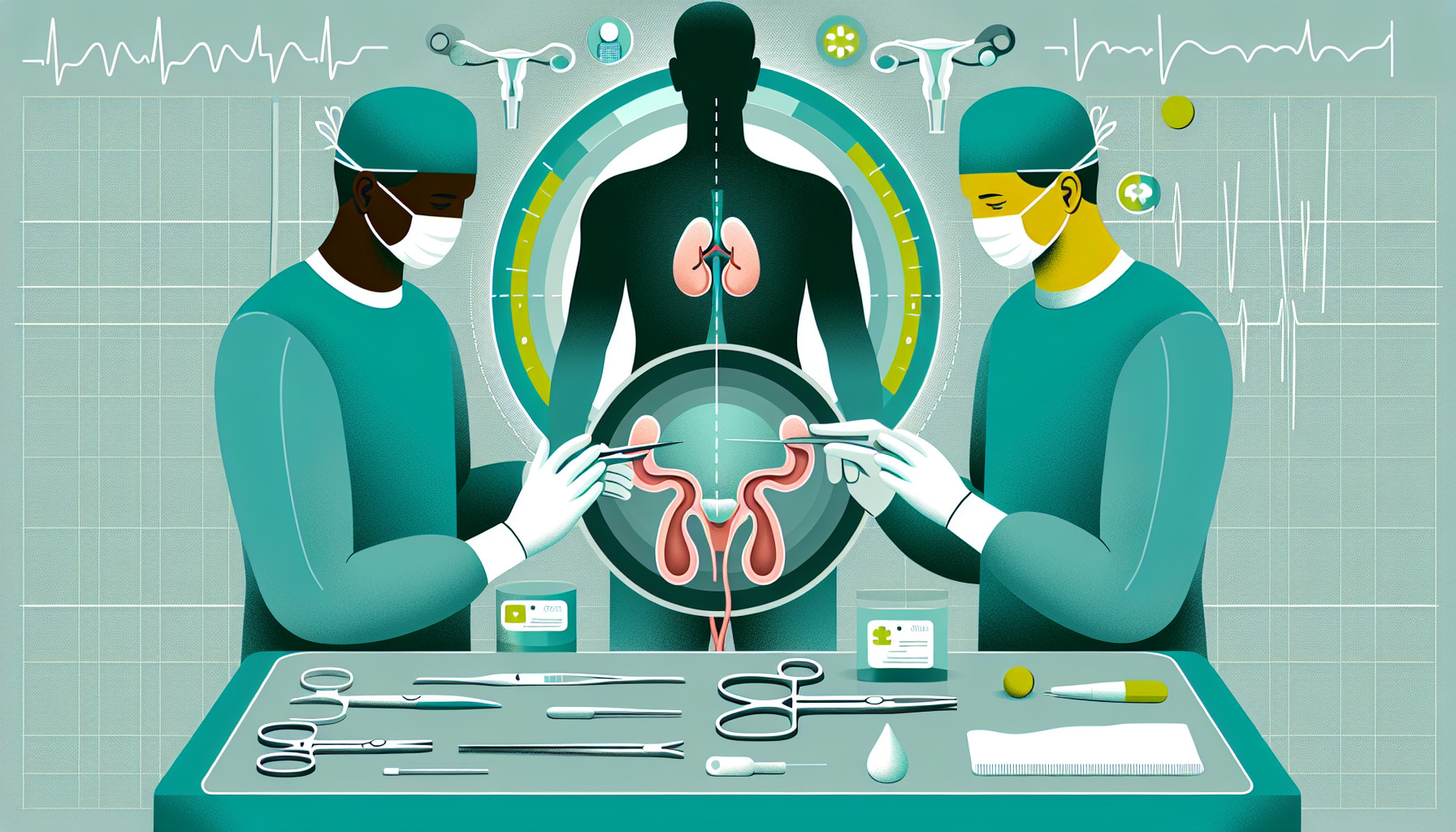Our Summary
This research paper discusses the effectiveness of robot-assisted radical cystectomy (RARC), a surgical procedure used to treat muscle-invasive bladder cancer. The researchers compared this method to the traditional open radical cystectomy (ORC) in terms of surgical success, recovery outcomes, complications, cancer control results, patient function after surgery, and costs. The study found that the RARC method matches the success of the traditional method in terms of surgical benchmarks and may even have some advantages. However, some aspects such as length of hospital stay and complication rates up to 90 days after surgery seem to be similar for both methods. The initial results for cancer control and post-surgery patient function are promising for RARC, but the researchers believe that more studies are needed to confirm when and for whom this method is most effective.
FAQs
- What is robot-assisted radical cystectomy (RARC) and how does it compare to traditional open radical cystectomy (ORC) in treating bladder cancer?
- What advantages and disadvantages does the RARC method have compared to the traditional ORC method?
- Are more studies needed to confirm the effectiveness and efficiency of the RARC method for treating bladder cancer?
Doctor’s Tip
A helpful tip a doctor might give a patient about cystectomy is to discuss with them the option of robot-assisted radical cystectomy (RARC) as a potential treatment option. This method has been shown to have similar surgical success rates as traditional open radical cystectomy (ORC) but may have some advantages in terms of recovery outcomes and post-surgery patient function. It is important for the patient to weigh the potential benefits and risks of each method and to have a thorough discussion with their doctor to determine the best course of action for their individual situation.
Suitable For
Patients typically recommended for cystectomy are those with muscle-invasive bladder cancer that has not responded to other treatments such as chemotherapy or radiation therapy. Additionally, patients with high-grade non-muscle invasive bladder cancer that has a high risk of progressing to muscle-invasive disease may also be recommended for cystectomy. Other conditions that may necessitate cystectomy include recurrent bladder cancer, extensive non-invasive bladder cancer that has not responded to other treatments, or other rare bladder conditions such as neurogenic bladder or interstitial cystitis. Ultimately, the decision to recommend cystectomy is based on the individual patient’s specific medical history, preferences, and overall health status.
Timeline
Before cystectomy:
- Diagnosis of muscle-invasive bladder cancer
- Consultation with urologist and oncologist
- Preoperative evaluations and tests such as blood work, imaging studies, and possibly chemotherapy or radiation therapy
- Discussion of treatment options including radical cystectomy
- Consent process for surgery
After cystectomy:
- Hospital admission for surgery
- Recovery in the hospital for a few days to a week
- Monitoring for complications such as infection or blood clots
- Rehabilitation and physical therapy to regain strength and function
- Follow-up appointments with the surgical team and oncologist for monitoring and potential adjuvant therapy
- Adjustment to life with a urinary diversion or bladder reconstruction
- Long-term surveillance for cancer recurrence and management of any side effects or complications from surgery.
What to Ask Your Doctor
- What are the potential risks and complications associated with cystectomy?
- How long is the recovery period after a cystectomy surgery?
- Will I need any additional treatments or follow-up care after the surgery?
- How will a cystectomy affect my bladder function and quality of life?
- What are the long-term outcomes for patients who undergo cystectomy?
- Are there any alternative treatments or procedures available for my condition?
- How experienced is the medical team in performing cystectomy surgeries?
- What is the success rate of cystectomy surgeries at this hospital or medical center?
- How will my insurance coverage or financial situation impact the cost of a cystectomy surgery?
- Are there any clinical trials or research studies available for cystectomy that I may be eligible for?
Reference
Authors: Satkunasivam R, Wallis CJ, Nam RK, Desai M, Gill IS. Journal: Nat Rev Urol. 2016 Sep;13(9):533-9. doi: 10.1038/nrurol.2016.139. Epub 2016 Aug 9. PMID: 27502548
